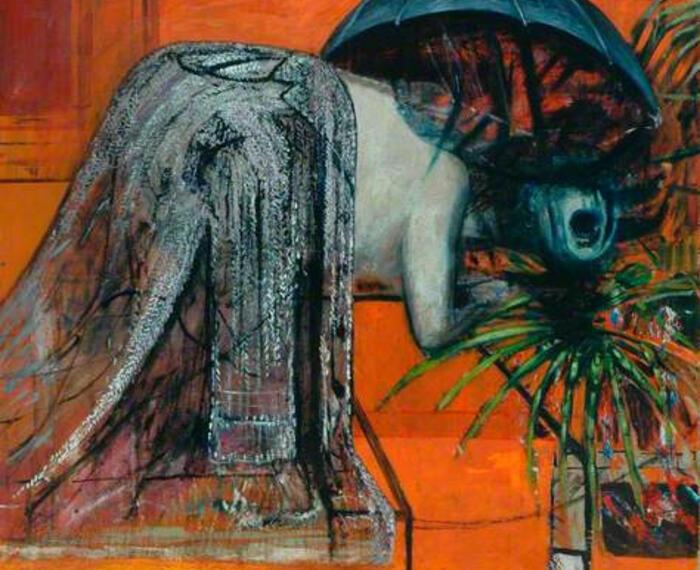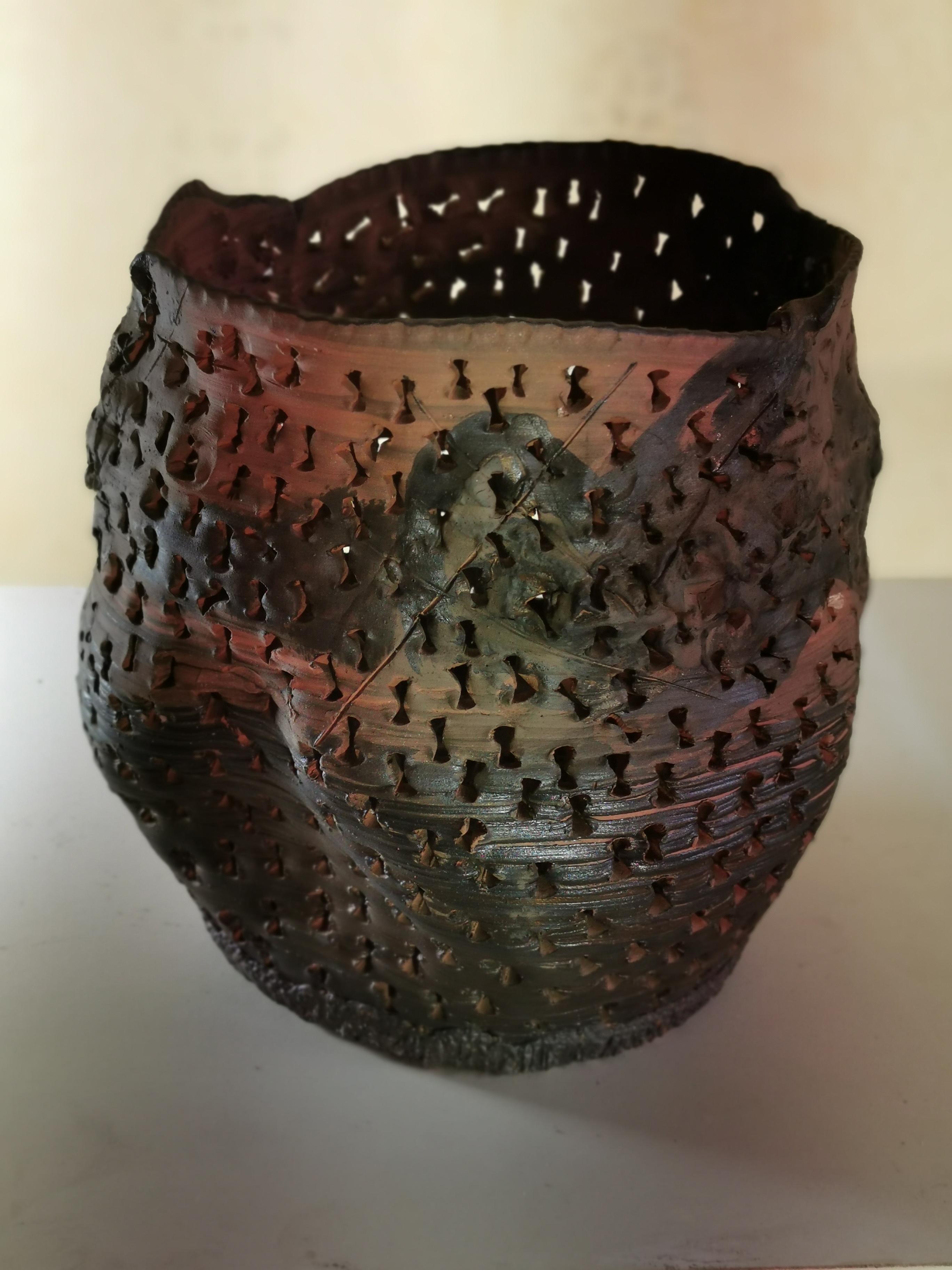Materials:
Clay, Metal, Earthenware
Physical Object Description:
Thrown and painted ceramic rose form composition. Place's Clay: La Fontenelle, Vosges (France) trace clay and the trace-metal material-paraphernalia of past wars. Place's Water: Le Hure, stream water and Ore's unhindered course in Edy Rose. Highlighted Terminology: "Edy Rose": Uniquely rose-form of an anomalous bit in the more-oblivious flow-direction of a stream-water torrent.
Technique:
Painted, Thrown
Dimensions:
28 x 30 x 30 cm
Accession Number:
(OIERK1)
Credit:
Presented by the Contemporary Art Society through the Omega Fund, 2020/21
Ownership history:
Created at Ban De Sapt Studio, 2015; purchased from the artist by the Contemporary Art Society, 2021; presented to MIMA, Middlesbrough Institute of Modern Art, 2021


